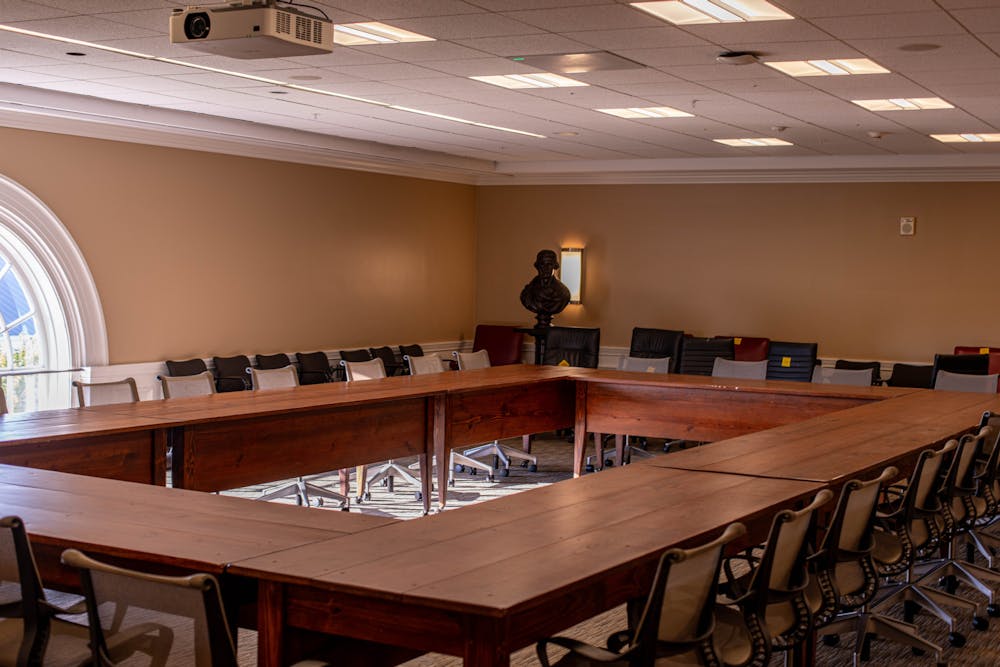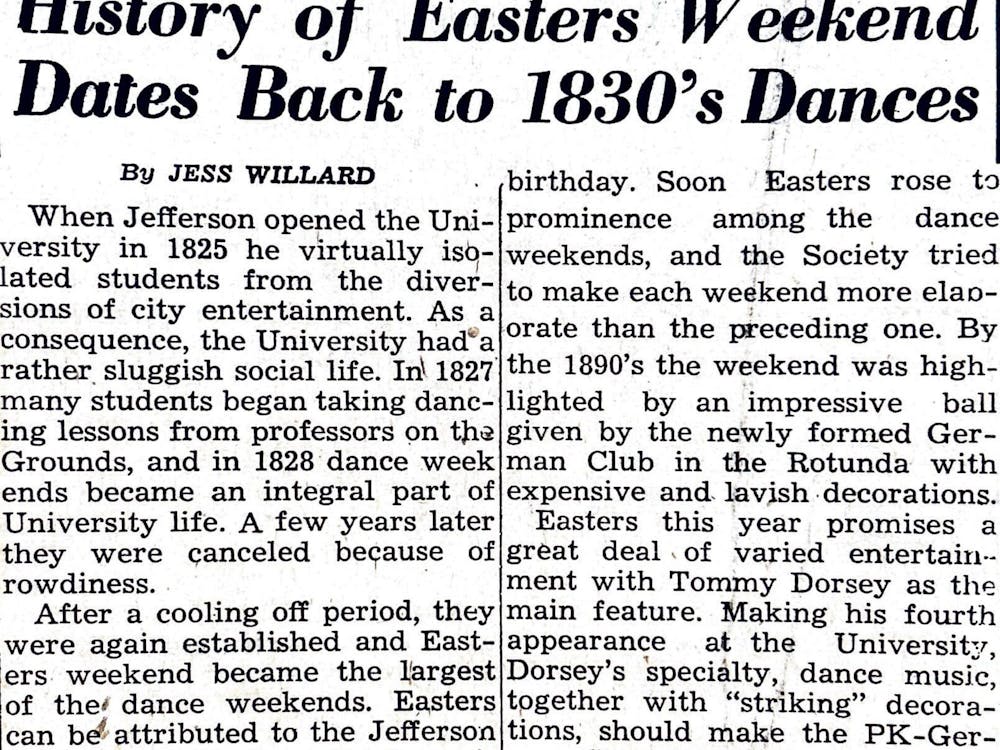The University Judiciary Committee elected their executive committee for its next term Sunday. The new leadership will take over April 1 and serve until the same date next year.
Harper Jones, senior counselor and third-year College student, will be the new chair, replacing third-year College student Lisa Kopelnik, who will continue to serve as a UJC representative while being the student member of the Board of Visitors. Kopelnik said that Jones will be the first senior counselor to become chair of the UJC.
Melinda Wong, vice chair for first-years and third-year Batten student, will be the new vice chair for trials. The vice chair for trials schedules hearings, assigns judges to trials, and heads the pool of UJC representatives elected from each of the 13 undergraduate and graduate schools that comprise the University.
Allison McVey, former First Year Judiciary Committee chair and second-year College student, will be the new vice chair for sanctions. McVey will be responsible for maintaining accurate records and tracking the completion of all sanctions imposed by the UJC, according to the UJC’s bylaws.
Anna Prillaman, vice chair for sanctions and third-year College student, will be the next vice chair for first years. The vice chair for first years is primarily tasked with selecting, training and overseeing the First Year Judiciary Committee.
Kopelnik said that UJC support officers will be selected by April 1 for the appointed roles within the executive committee, and that the vice chair for graduate students — a position that oversees outreach and recruitment in graduate schools and programs — will be elected during the first week of April. Each vice chair serves as a voting member of the UJC’s executive committee, and the appointed, non-voting positions on the executive committee include two senior counselors, a senior educator, a senior data manager and a senior investigator.
The UJC’s new executive board will inherit a Committee that has seen significant changes in the types of cases they are assigned, as well as the number. The fall 2023 semester saw a decline in case numbers, as well as a reduction in time each case took for adjudication. This semester has seen an increase in alleged Standard 2 violations, which pertains to conduct that intentionally threatens a person’s health and safety. Other recent developments include a focus on educating the community on hazing case trial processes, and broader initiatives dedicated to boosting the UJC’s engagement with the student body.







